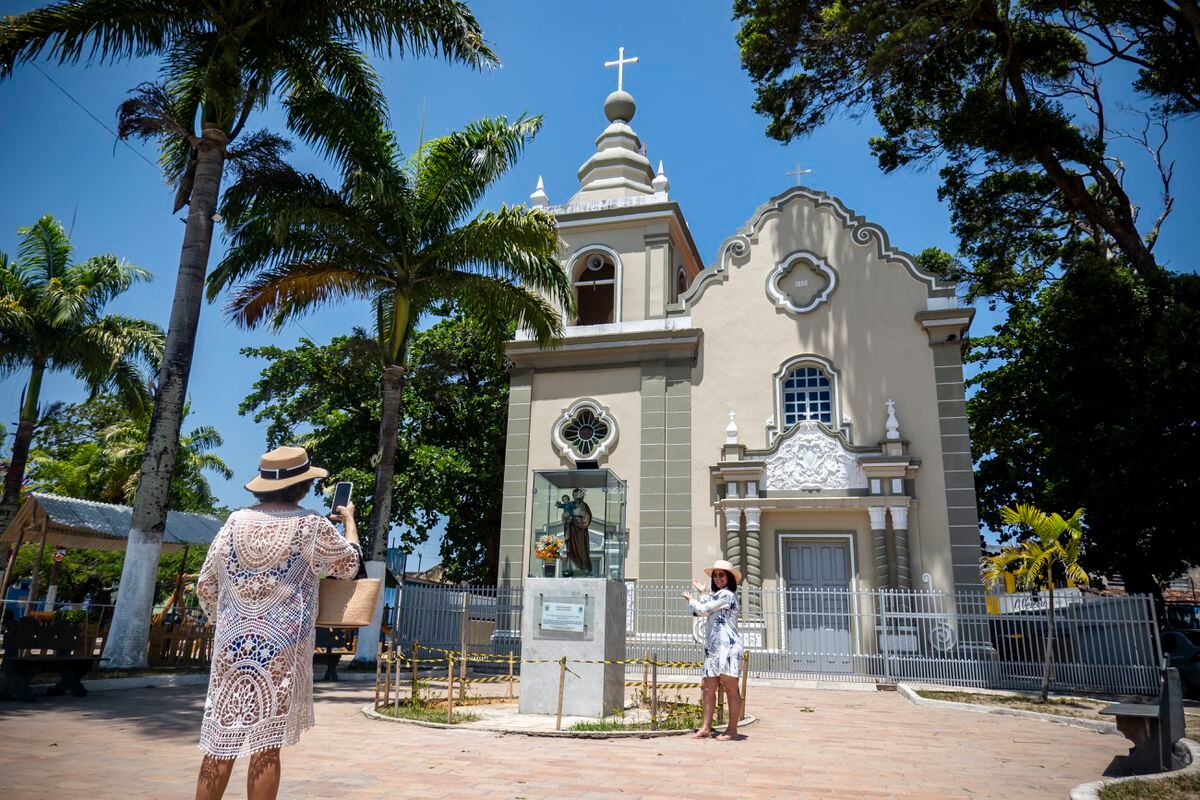Brazil is a special country, with many world records, such as its surface area, the fifth largest on the planet;
its number of inhabitants: 203 million and its Amazon rainforest that contains 20% of the world's drinking water.
Not counting the negative part, such as atavistic racism, political corruption and social inequalities.
And if these records were few, now a new one has just appeared: it is the country with the highest number of religious temples.
More than schools and hospitals.
It has just been revealed by the Ipea (Institute of Economic Research).
The official number of temples and churches of various religious beliefs, such as Catholics, Evangelicals and African rites, is 580,000, while schools and universities total 264,400 and hospitals and various medical centers, 247,500.
There is one temple for every 68 families throughout the country.
And while the Catholic churches decrease, those of the different evangelical beliefs grow, which, for example, are almost the only ones in the entire Amazon area where they have integrated with the natives more strongly than the Catholics.
The multiplication of places of worship in Brazil takes on all these proportions because among evangelicals, whether from the Universal Church or the Pentecostals, there are not only mega-temples that can house up to three thousand faithful, but even a simple place, in a suburb , an abandoned market, can be converted into a church.
Legalizing it in a country where bureaucracy is suffocating, creating a church is done in 48 hours and they are exempt from all types of taxes.
The number of evangelical temples that are created every day is such that a funny fact is the difficulty they are already finding in giving names to these churches, to the point that even the church of La Saliva de Cristo exists, alluding to when Jesus, He cured a blind man's sight by mixing his saliva with a handful of mud.
Perhaps because Brazil, despite its rates of poverty and extreme inequalities, does not give up in the search for pleasure, it is the country where, unlike, for example, in Europe, where the names of the virgins are sad, like Our Lady of Sorrows or Anguish, there is the church of Our Lady of Happiness.
Brazil is a classic example that the secularism that modernity brought did not mean a decrease in the religious field that remains strongly rooted and embraces all social classes.
Not perhaps, despite the competition from the evangelical churches, Brazil continues to be the country in the world with the largest number of Catholics and with the fewest declared atheists or agnostics.
As Presbyterian theologian Daniel Guananais has written, religion “has no survival value.
So much so that one lives without it.
But it has a great meaning value and that is the reason why, despite all modernity, religious systems grow, resist and will remain alive despite all negative forecasts.”
The problem, however, in Brazil is that, while Catholic influence decreases and the evangelical population increases every day, the former remains the faith of the middle and rich classes, while the evangelical has managed to penetrate among the millions of poor and less educated.
With the particularity that its pastors know how to exploit in these temples the precepts of the Old Testament, a mixture of fears and demons, of promises of salvation and social help in the most abandoned corners.
Not perhaps, among evangelicals the rite of exorcisms to cast out demons is still alive, something that is disappearing among Catholics.
What Catholics and evangelicals forget is that Jesus, the center of these churches born of Christianity, made it clear that true religious faith does not reside in temples, large or small, but in the intimacy of the person.
Suffice it to remember one of the most revolutionary passages in the Gospels, that of John (4:5 ff.) in the famous and revolutionary conversation with the Samaritan woman.
The Samaritans did not speak to the Jews and had their own temples.
Jesus, the quintessential provocateur, passing through Samaria, stopped, scandalizing the apostles who accompanied him, to talk with a woman who was drawing water from a well.
The conversation appears in the gospel even with a certain flirtatious tenor.
The woman provokes him by asking him why he is talking to her, who was a Samaritan.
Jesus tells the woman to go find her husband.
“I don't have a husband,” she replied.
And Jesus puzzles her: “You are right, because you have already had five and the one now is not yours either.”
The disarmed and perplexed Samaritan confesses: “It's true.
Then you are a prophet.”
The Samaritan woman, an enemy of the Jews, insists on the conversation: she reproaches him for the Jews defending that theirs is the only valid temple.
And she reminds him in her defense: “Our fathers worshiped God on this mountain.”
And that is where Jesus makes one of his greatest revelations of all the gospels: “Believe me, woman, the hour is coming when neither on this mountain nor in Jerusalem will you worship God except in spirit and in truth.”
According to the revolutionary Jew, the true religion, the only valid temple, the only authentic faith, cannot be found in the four walls of a temple, whatever it may be, but in the heart of each person and in the acceptance of diversity, without distinctions between Jews and Samaritans.
Does the Gospel passage of the conversation between the antagonists, the Jew Jesus and the Samaritan woman, evoke nothing in you, in this serious and sad historical moment that those lands are experiencing?
Doesn't it remind you of that war that sadly judges us all, that revolutionary biblical passage of the Samaritan woman and Jesus?
Why not Jews and Palestinians together living in peace without disputing temples or religions?
Subscribe to continue reading
Read without limits
Keep reading
I am already a subscriber
_

